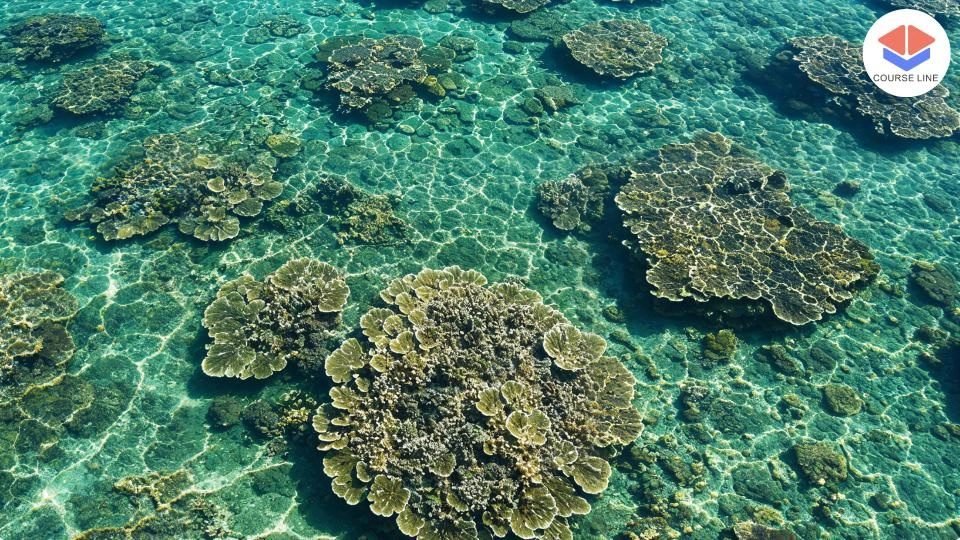Course Features
Price
Study Method
Online | Self-paced
Course Format
Reading Material - PDF, article
Duration
2 hours, 45 minutes
Qualification
No formal qualification
Certificate
At completion
Additional info
Coming soon
- Share
Overview
The Beekeeping curriculum provides a thorough introduction to the fascinating world of bees and beekeeping. It begins with an exploration of bees as beneficial insects, highlighting their crucial role in pollination and the environment. Learners will gain an understanding of bee biology, behavior, and their social structure, which is fundamental for successful beekeeping. The course also covers the rich history of beekeeping, offering students a glimpse into the evolution of the practice and how it has developed over centuries.
One of the core focuses of the course is the wide range of benefits that beekeeping offers, from honey production to supporting local ecosystems through pollination. Students will learn how to start their own beekeeping journey, including selecting and installing the right type of bees for their region and goals. The course will cover essential beekeeping equipment, such as hives, protective gear, and tools needed to properly care for the bees and manage the hive.
Maintaining a healthy hive is critical, and learners will explore best practices for hive management, including feeding, inspecting, and handling bees to ensure their well-being. The course also highlights the importance of pollination, showing how bees help in the reproduction of plants and crops, which is vital for food production and biodiversity. Additionally, students will learn about common diseases and pests that can affect beehives, along with strategies to prevent and manage these threats to protect the colony.
The final sections of the course focus on marketing hive products, such as honey, beeswax, and royal jelly. Students will gain insights into how to turn their beekeeping passion into a sustainable business by branding, selling, and distributing their products. By the end of the course, students will have a solid foundation in beekeeping practices, pest management, and the marketing of their products, enabling them to run a successful beekeeping operation.
Who is this course for?
The Beekeeping curriculum provides a thorough introduction to the fascinating world of bees and beekeeping. It begins with an exploration of bees as beneficial insects, highlighting their crucial role in pollination and the environment. Learners will gain an understanding of bee biology, behavior, and their social structure, which is fundamental for successful beekeeping. The course also covers the rich history of beekeeping, offering students a glimpse into the evolution of the practice and how it has developed over centuries.
One of the core focuses of the course is the wide range of benefits that beekeeping offers, from honey production to supporting local ecosystems through pollination. Students will learn how to start their own beekeeping journey, including selecting and installing the right type of bees for their region and goals. The course will cover essential beekeeping equipment, such as hives, protective gear, and tools needed to properly care for the bees and manage the hive.
Maintaining a healthy hive is critical, and learners will explore best practices for hive management, including feeding, inspecting, and handling bees to ensure their well-being. The course also highlights the importance of pollination, showing how bees help in the reproduction of plants and crops, which is vital for food production and biodiversity. Additionally, students will learn about common diseases and pests that can affect beehives, along with strategies to prevent and manage these threats to protect the colony.
The final sections of the course focus on marketing hive products, such as honey, beeswax, and royal jelly. Students will gain insights into how to turn their beekeeping passion into a sustainable business by branding, selling, and distributing their products. By the end of the course, students will have a solid foundation in beekeeping practices, pest management, and the marketing of their products, enabling them to run a successful beekeeping operation.
Requirements
The Beekeeping curriculum provides a thorough introduction to the fascinating world of bees and beekeeping. It begins with an exploration of bees as beneficial insects, highlighting their crucial role in pollination and the environment. Learners will gain an understanding of bee biology, behavior, and their social structure, which is fundamental for successful beekeeping. The course also covers the rich history of beekeeping, offering students a glimpse into the evolution of the practice and how it has developed over centuries.
One of the core focuses of the course is the wide range of benefits that beekeeping offers, from honey production to supporting local ecosystems through pollination. Students will learn how to start their own beekeeping journey, including selecting and installing the right type of bees for their region and goals. The course will cover essential beekeeping equipment, such as hives, protective gear, and tools needed to properly care for the bees and manage the hive.
Maintaining a healthy hive is critical, and learners will explore best practices for hive management, including feeding, inspecting, and handling bees to ensure their well-being. The course also highlights the importance of pollination, showing how bees help in the reproduction of plants and crops, which is vital for food production and biodiversity. Additionally, students will learn about common diseases and pests that can affect beehives, along with strategies to prevent and manage these threats to protect the colony.
The final sections of the course focus on marketing hive products, such as honey, beeswax, and royal jelly. Students will gain insights into how to turn their beekeeping passion into a sustainable business by branding, selling, and distributing their products. By the end of the course, students will have a solid foundation in beekeeping practices, pest management, and the marketing of their products, enabling them to run a successful beekeeping operation.
Career path
The Beekeeping curriculum provides a thorough introduction to the fascinating world of bees and beekeeping. It begins with an exploration of bees as beneficial insects, highlighting their crucial role in pollination and the environment. Learners will gain an understanding of bee biology, behavior, and their social structure, which is fundamental for successful beekeeping. The course also covers the rich history of beekeeping, offering students a glimpse into the evolution of the practice and how it has developed over centuries.
One of the core focuses of the course is the wide range of benefits that beekeeping offers, from honey production to supporting local ecosystems through pollination. Students will learn how to start their own beekeeping journey, including selecting and installing the right type of bees for their region and goals. The course will cover essential beekeeping equipment, such as hives, protective gear, and tools needed to properly care for the bees and manage the hive.
Maintaining a healthy hive is critical, and learners will explore best practices for hive management, including feeding, inspecting, and handling bees to ensure their well-being. The course also highlights the importance of pollination, showing how bees help in the reproduction of plants and crops, which is vital for food production and biodiversity. Additionally, students will learn about common diseases and pests that can affect beehives, along with strategies to prevent and manage these threats to protect the colony.
The final sections of the course focus on marketing hive products, such as honey, beeswax, and royal jelly. Students will gain insights into how to turn their beekeeping passion into a sustainable business by branding, selling, and distributing their products. By the end of the course, students will have a solid foundation in beekeeping practices, pest management, and the marketing of their products, enabling them to run a successful beekeeping operation.
-
- Get Familiar with Bee, a Benignant Insect 00:10:00
-
- Brief History of Beekeeping 00:10:00
- Discover the Benefits of Beekeeping 00:10:00
- Essential Equipment for Beekeeping 00:10:00
- Taking Care of Your Hive 00:10:00
- Disease and Pest 00:10:00
- Exam of Bookkeeping 00:50:00

No Reviews found for this course.
Is this certificate recognized?
Yes, our premium certificate and transcript are widely recognized and accepted by embassies worldwide, particularly by the UK embassy. This adds credibility to your qualification and enhances its value for professional and academic purposes.
I am a beginner. Is this course suitable for me?
Yes, this course is designed for learners of all levels, including beginners. The content is structured to provide step-by-step guidance, ensuring that even those with no prior experience can follow along and gain valuable knowledge.
I am a professional. Is this course suitable for me?
Yes, professionals will also benefit from this course. It covers advanced concepts, practical applications, and industry insights that can help enhance existing skills and knowledge. Whether you are looking to refine your expertise or expand your qualifications, this course provides valuable learning.
Does this course have an expiry date?
No, you have lifetime access to the course. Once enrolled, you can revisit the materials at any time as long as the course remains available. Additionally, we regularly update our content to ensure it stays relevant and up to date.
How do I claim my free certificate?
I trust you’re in good health. Your free certificate can be located in the Achievement section. The option to purchase a CPD certificate is available but entirely optional, and you may choose to skip it. Please be aware that it’s crucial to click the “Complete” button to ensure the certificate is generated, as this process is entirely automated.
Does this course have assessments and assignments?
Yes, the course includes both assessments and assignments. Your final marks will be determined by a combination of 20% from assignments and 80% from assessments. These evaluations are designed to test your understanding and ensure you have grasped the key concepts effectively.
Is this course accredited?
We are a recognized course provider with CPD, UKRLP, and AOHT membership. The logos of these accreditation bodies will be featured on your premium certificate and transcript, ensuring credibility and professional recognition.
Will I receive a certificate upon completion?
Yes, you will receive a free digital certificate automatically once you complete the course. If you would like a premium CPD-accredited certificate, either in digital or physical format, you can upgrade for a small fee.
Course Features
Price
Study Method
Online | Self-paced
Course Format
Reading Material - PDF, article
Duration
2 hours, 45 minutes
Qualification
No formal qualification
Certificate
At completion
Additional info
Coming soon
- Share
Energy Engineering Level 3 Advanced Diploma
Course Line238£490.00Original price was: £490.00.£14.99Current price is: £14.99.Oceanography Level 8 Advanced Diploma
Course Line238£490.00Original price was: £490.00.£14.99Current price is: £14.99.Control Systems Level 3 Advanced Diploma
Course Line237£490.00Original price was: £490.00.£14.99Current price is: £14.99.





